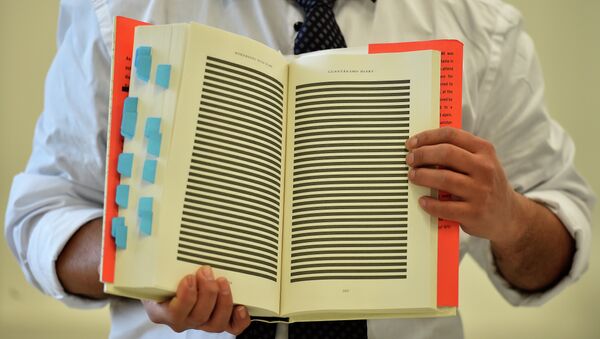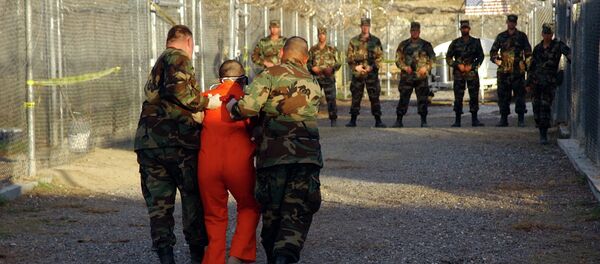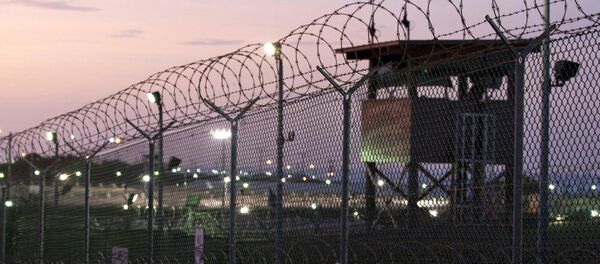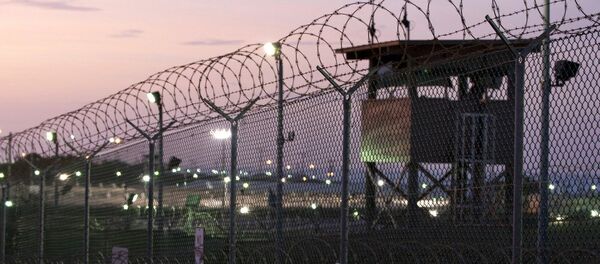"It is the first and the only book to come out of Guantanamo, and written while in Guantanamo. I think it really opens up the world that the US Government has tried to keep secret for 13 years," Siems told Sputnik.
The Guantanamo Diary was written by Mohamedou Slahi in 2005, describing his years in one of the world's most notorious prisons. The book had been classified until 2012, due to the nature of its contents.
"We will all be free to see the Guantanamo Diary for what it ultimately is: an account of one man's odyssey through an increasingly borderless and anxious world," Siems told Sputnik.
"What happened to him was carefully planned, ahead of time they wrote interrogation plans and then they carefully documented them. So, the broad outlines of what happened to him, the treatment that he described was long known," Siems said, underlining that the human experience Salih went through, as well as his exchanges with his captors, make the book interesting.
"But I think what this book does is really illustrates the human cost of those things, and interestingly not just on those who have been tortured, but on the American serviceman and servicewomen and intelligence officers… there are some very-very pointed scenes of guards and interrogators, dealing with their own consciences over what they've been asked to do," Siems said.
Slahi was born in 1970 in Mauritania. He pledged allegiance to al-Qaida in 1991, severing his links to the group a year later. Slahi spent most of the 90s in Germany.
Following the 9/11 terror attacks, Slahi was arrested in Mauritania by request of the United States. He was rendered to a prison in Jordan where he was held for 8 months. Slahi arrived at Guantanamo bay in August 2002. Despite rounds of interrogations, no charges have ever been brought against him.
Slahi still remains in Guantanamo Bay.
The Guantanamo prison opened in 2002 in the wake of 9/11 terrorist attacks on the United States. Since then, the military detention facility has been subject to criticism by human rights advocates, citing inhumane conditions including the use of torture, described by former detainees and detailed in a recent US government "torture report."
In 2009, US President Barack Obama issued an executive order to review the status of all individuals imprisoned at the Guantanamo Bay Naval Base and to shut down the detention facilities. The number of detainees has nearly been cut in half since 2009 but the facility remains open.





